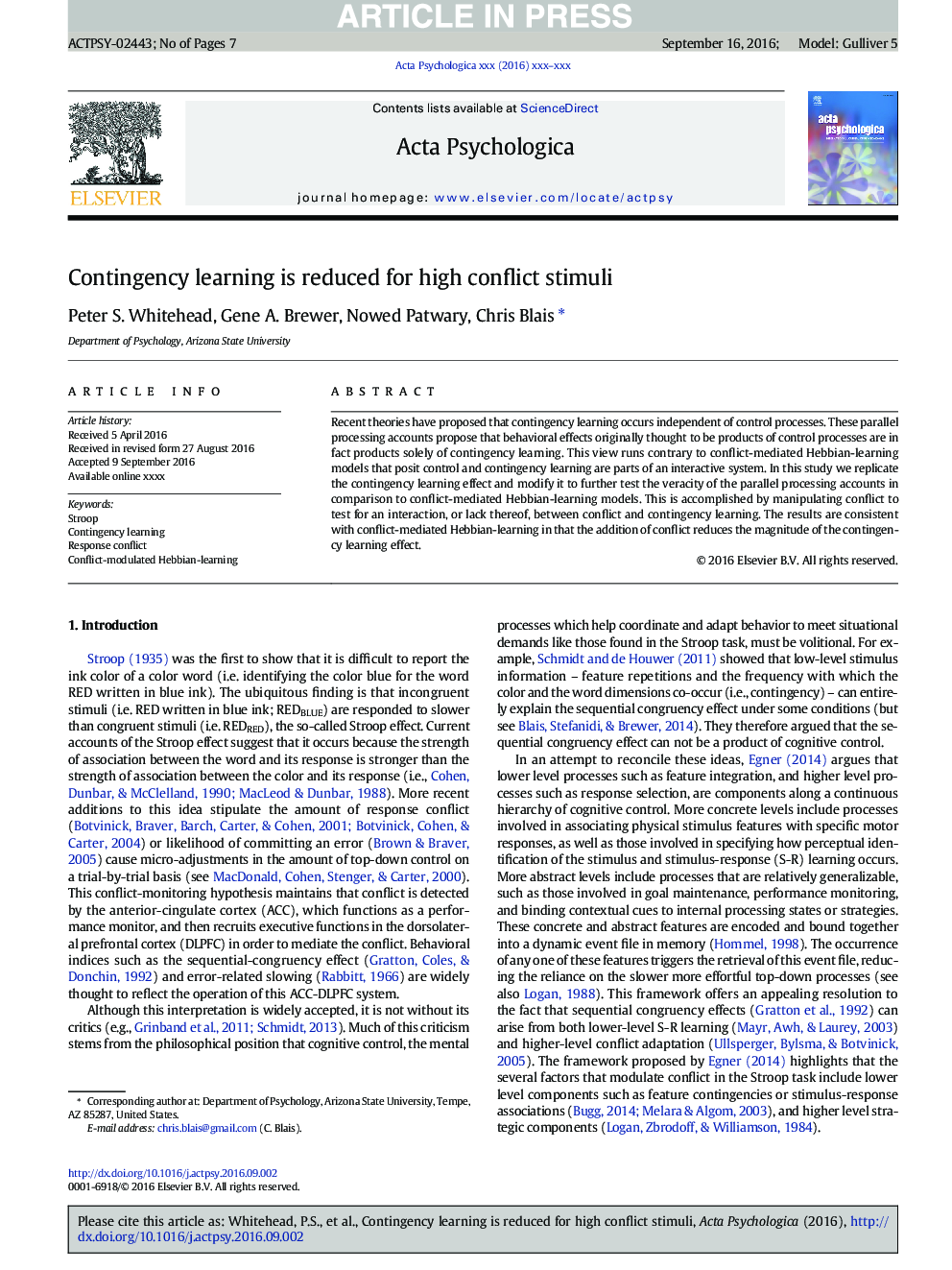| Article ID | Journal | Published Year | Pages | File Type |
|---|---|---|---|---|
| 10226690 | Acta Psychologica | 2018 | 7 Pages |
Abstract
Recent theories have proposed that contingency learning occurs independent of control processes. These parallel processing accounts propose that behavioral effects originally thought to be products of control processes are in fact products solely of contingency learning. This view runs contrary to conflict-mediated Hebbian-learning models that posit control and contingency learning are parts of an interactive system. In this study we replicate the contingency learning effect and modify it to further test the veracity of the parallel processing accounts in comparison to conflict-mediated Hebbian-learning models. This is accomplished by manipulating conflict to test for an interaction, or lack thereof, between conflict and contingency learning. The results are consistent with conflict-mediated Hebbian-learning in that the addition of conflict reduces the magnitude of the contingency learning effect.
Related Topics
Life Sciences
Neuroscience
Cognitive Neuroscience
Authors
Peter S. Whitehead, Gene A. Brewer, Nowed Patwary, Chris Blais,
